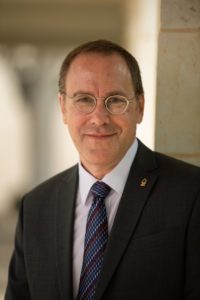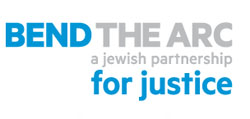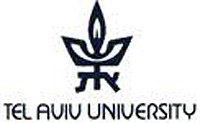Ben Gurion University has a new president (5 items)

Professor Daniel (Danny) Chamovitz, dean of the George S. Wise Faculty of Life Sciences at Tel Aviv University (TAU), was today elected as the seventh president of Ben-Gurion University of the Negev (BGU).
The University’s executive committee, headed by Asher Heled, confirmed the recommendation of the Presidential Search Committee, also chaired by Heled. Chamovitz (pronounced Sham-a-vitz) will assume office on January 1, 2019, replacing outgoing President Prof. Rivka Carmi, who will have completed three terms in office (12 years).
In his presentation to the executive committee, Chamovitz said, “Ben-Gurion University of the Negev is uniquely positioned to take a leading role nationally and internationally. The University already embraces diverse academic fields, having developed strong science, humanities and professional programs, and it attracts bright young researchers.
“Its modern campus, which is expected to expand to the new North Campus, combined with the new Advanced Technologies Park next door, open up countless opportunities for innovation and interactions with industry that could only have been dreamed of in the past.”
Chamovitz’s vision emphasizes a focus on “excellence and innovation in the three pillars that define Ben-Gurion University: Research, academia and community outreach. These three pillars must be shaped by the University’s mission, inherent it its name,” he said. — From Ben Gurion University
*
Bend the Arc tells Congressional endorsements
 Bend the Arc: Jewish Action PAC, which describes itself as “the nation’s only Jewish PAC with a sole and central mission of supporting a progressive domestic agenda,” on Tuesday endorsed its newest slate of candidates for the 2018 election cycle.
Bend the Arc: Jewish Action PAC, which describes itself as “the nation’s only Jewish PAC with a sole and central mission of supporting a progressive domestic agenda,” on Tuesday endorsed its newest slate of candidates for the 2018 election cycle.
The candidates are five Democrats in key competitive races across the country: Jennifer Wexton (VA-10), Gina Ortiz Jones (TX-23), Mikie Sherrill (NJ-11), Mike Levin (CA-49), and Josh Harder (CA-10).
“Each one of our chosen candidates has a track record of bold leadership on issues important to the Jewish community, from protecting immigrants to championing economic justice and civil rights,” said Derek Pugh, Director of Bend the Arc: Jewish Action PAC. “We look forward to having these progressive leaders in Congress as champions for an agenda that rejects hatred and bigotry and that reflects the values of the majority of Jewish Americans.”
Each candidate was chosen based on their policy stances reflecting Bend the Arc: Jewish Action PAC’s core values. The “chosen candidates” have demonstrated a commitment to protecting equal rights for all, including voting rights, racial equity, LGBTQ rights, reproductive rights, equal opportunity, including support for fair treatment of workers and fundamental economic justice, and a welcoming America based on policies that ensure protection and humane treatment of immigrants and refugees.
Bend the Arc: Jewish Action PAC has set a goal of raising $500,000 to support Congressional candidates in the 2018 cycle. — From Bend the Arc
*
Tiny number of protons may have great influence on neutron stars
 Neutron stars are the smallest, densest stars in the universe, born out of the gravitational collapse of extremely massive stars. True to their name, neutron stars are composed almost entirely of neutrons — neutral subatomic particles that have been compressed into a small, incredibly dense celestial package.
Neutron stars are the smallest, densest stars in the universe, born out of the gravitational collapse of extremely massive stars. True to their name, neutron stars are composed almost entirely of neutrons — neutral subatomic particles that have been compressed into a small, incredibly dense celestial package.
A new study in Nature suggests that some properties of neutron stars may be influenced not only by their multitude of densely packed neutrons, but also by a substantially smaller fraction of protons — positively charged particles that make up just 5 percent of a neutron star. Because protons may carry substantially more energy than previously thought, they may contribute to properties of a neutron star such as its stiffness, its ratio of mass to size and its process of cooling.
The research was led by Prof. Eli Piasetzky of Tel Aviv University’s School of Physics, Prof. Or Hen of the Massachusetts Institute of Technology (MIT), and Prof. Larry Weinstein of Old Dominion University. The graduate student who analyzed the data was Meytal Duer of TAU’s School of Physics.
“This finding may shake up scientists’ understanding of how neutron stars behave,” says Prof. Hen of MIT’s Laboratory of Nuclear Science.
“We think that when you have a neutron-rich nucleus, the protons move faster than the neutrons, so in some sense protons carry the action on average,” Prof. Hen continues. “Even though protons are the minority in the star, we think the minority rules. Protons seem to be very active, and we think they might determine several properties of the star.”
“The cosmological abundance of nuclei is not well understood,” says Prof. Piasetzky. “We think that the merging of two neutron stars is one of the main processes in the universe that create nuclei heavier than iron, such as gold. Our study of neutron-rich nuclei indicates that we must reconsider the role played by the small fraction of protons in the neutron star and its impact on the nuclei creation process.”
The researchers looked for signs of proton and neutron pairs in carbon, aluminium, iron and lead nuclei, each with a progressively higher ratio of neutrons to protons. They found that, as the relative number of neutrons in an atom increased, so did the probability that a proton would form an energetic pair. The likelihood that a neutron would pair up, however, stayed about the same.
“This trend suggests that, in objects with high neutron density, the minority protons carry a disproportionally large part of the average energy,” says Prof. Piasetzky. — From Tel Aviv University
*
Isaiah and Hezekiah exhibition extended in Oklahoma

Armstrong International Cultural Foundation in Edmond, Oklahoma, has extended its archaeology exhibit, “Seals of Isaiah and King Hezekiah Discovered” through January 2019 at Armstrong Auditorium.
“These rare artifacts give viewers a glimpse into biblical times, and bring to life the story of the prophet Isaiah and King Hezekiah,” said Brad Macdonald, curator for the exhibit. “We’ve had tour buses and thousands of visitors from all over the U.S. experience the interactive display at Armstrong Auditorium.” According to Macdonald, over 4,000 people have visited the exhibit in just the first nine weeks, prompting the foundation to request an extension from the Israel Antiquities Authority. The IAA approved the request and the exhibit will remain open through January 27, 2019.
The exhibit includes over three dozen artifacts from Jerusalem’s First Temple period, including royal Judean vessels, silver bullion and weapons used during the siege of Lachish, as well as replicas of the Assyrian wall reliefs of Lachish and the famous Annals of Sennacherib Prism (aka Taylor Prism).
The most popular artifacts are the two clay seals that were discovered in an excavation by Dr. Eilat Mazar of Hebrew University, explained Macdonald. According to their inscriptions, the clay seals, called bullae, belonged to King Hezekiah of Judah and Isaiah, believed to be the prophet. The seals were found by Mazar in the same strata of soil just feet apart in the ruins of the royal palace in Jerusalem and scientifically dated to the 8th century B.C.
Featured in Biblical Archaeology Review magazine, the “Seals of Isaiah and King Hezekiah Discovered” exhibition is free and open to the public. The exhibit will also be on display in the lobby of Armstrong Auditorium during the first half of Armstrong’s 2018-2019 performing arts season. – From Armstrong International Cultural Foundation
*
Israeli 7-Year-Old to compete in World Chess Championship in Tunisia
 StandWithUs mobilized a social media action campaign, targeting the World Chess Federation (FIDE), entitled #LetLielPlay. Due to this effective online campaign, Tunisia has committed to hosting “players from all over the world without exception”, to avoid losing its chance of hosting the upcoming Worlds School Individual Chess Championship.
StandWithUs mobilized a social media action campaign, targeting the World Chess Federation (FIDE), entitled #LetLielPlay. Due to this effective online campaign, Tunisia has committed to hosting “players from all over the world without exception”, to avoid losing its chance of hosting the upcoming Worlds School Individual Chess Championship.
The World Chess Federation, has granted the hosting of the upcoming championship games to Tunisia, a country that has no diplomatic ties with Israel. Moreover, Tunisia bars the entry of Israelis from entering the country.
The campaign was launched by StandWithUs, after Liel Levitan, a 7-year-old Israeli girl, won the European Schools Individual Championship. After Liel’s achievement, she was entitled to a spot in the world championship held in Tunisia. However, due to Tunisia’s policy of barring Israelis from its borders, Liel would not be able to play.
After StandWithUs supporters sent hundreds of letters to the World Chess Federation, Polina Tsedenova, FIDE secretary, responded that the organization is taking necessary measures to put pressure on Tunisia to allow entry of all participants.
“We have requested an urgent explanation from the Tunisian Chess Federation”, Tsedenova wrote. “We are also sending them a separate letter requesting written confirmation that the 2019 World Schools Championship, which is scheduled to take place in Tunisia, will provide visas to all participants. Only after that will the organization of the tournament be confirmed for them”.
Within days, the Tunisian Chess Federation issued an official letter referencing Liel Levitan and confirming that they will host “players from all over the world… without exception”.
“This is unprecedented and represents a breakthrough in the accountability of international sports organizations regarding the mistreatment of Israeli athletes in world sporting events,” said StandWithUs Public Affairs Director, Gilad Kabilo. —From StandWithUs
*
Preceding culled from news releases. Send yours to editor@sdjewishworld.com